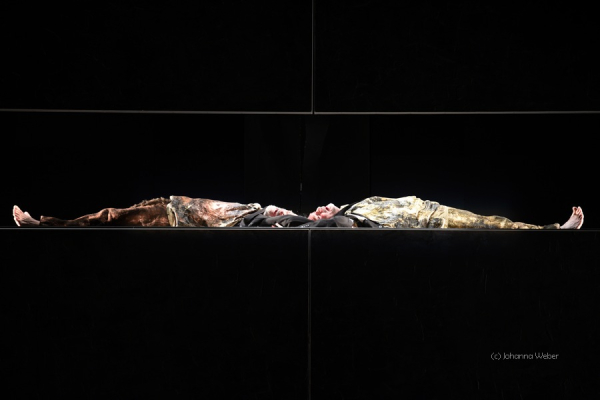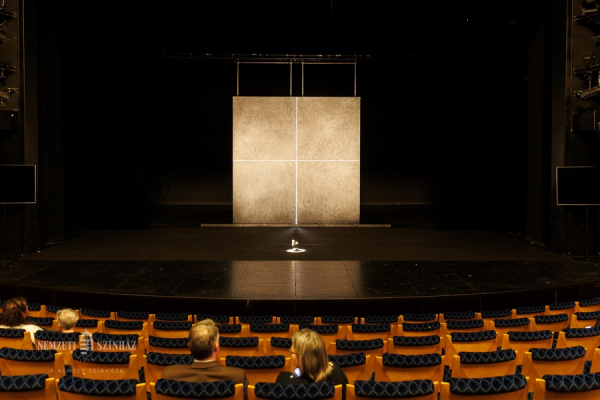
WAITING FOR GODOT MITEM
Greek director Theodoros Terzopoulos stages Beckett’s most famous work: in the hands of Terzopoulos, Waiting for Godot becomes one lens to decipher the Other who, inside and outside of us, summons opposites: animal longing and divine tension, madness and dream, delirium and nightmare. A show that questions our own humanity.
On stage, two young performers and three of the most intense and sensitive Italian actors; the music is signed by Panayiotis Velianitis, one of the first Greek composers of computer and computer aided music.
Greek director Theodoros Terzopoulos stages Beckett’s most famous work: in the hands of Terzopoulos, Waiting for Godot becomes one lens to decipher the Other who, inside and outside of us, summons opposites: animal longing and divine tension, madness and dream, delirium and nightmare. A show that questions our own humanity.
On stage, two young performers and three of the most intense and sensitive Italian actors; the music is signed by Panayiotis Velianitis, one of the first Greek composers of computer and computer aided music.
About Aspettando Godot (Waiting for Godot)
by Theodoros Terzopoulos
Our performance of Aspettando Godot (Waiting for Godot) will be set on “the ruins of the world”, in a future more or less close to us, where all the present and the past wounds will be kept open. The same for the expectations… At this borderline of human existence, what are the minimum possible conditions for restarting life, a life that is worth living? In Aspettando Godot (Waiting for Godot) there are two possible answers and there we intend to support our work.
The first is the effort to communicate and coexist with the Other, the one who is before us, despite of any obstacles, even when these seem formidable! The second is the effort to communicate with the Other inside us, this inscrutable and dark area of repressed desires and fears, forgotten senses and instincts, the region of the animal and the divine, where madness and dream, delirium and nightmare are born.
This is the journey we will try to make: towards the Other inside us and towards the Other outside, opposite, away from us. This is the journey we try to do every day. Waiting for what? The Redemption of life from the shackles of death? The meeting with the Human, the end of every humiliation of human by human? The Nothing or the Waiting, as Beckett derisively says?
But is there another way to envisage the emancipated human, without breaking down the walls that separate this “inside” from this “outside”?


